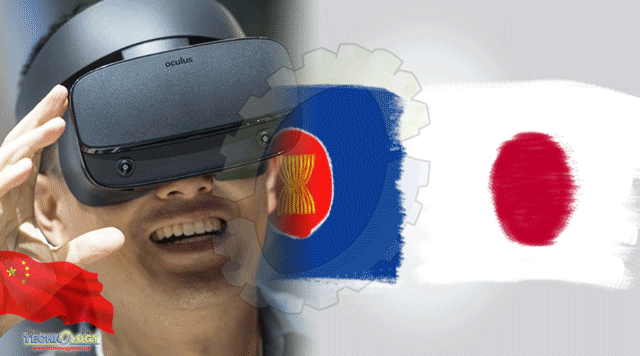New tech adopted in China to cope with the coronavirus pandemic are rapidly finding a home in Japan, such as virtual reality systems that enable stores to create three-dimensional tours.

New tech adopted in China to cope with the coronavirus pandemic are rapidly finding a home in Japan, such as virtual reality systems that enable stores to create three-dimensional tours.
“We tried to create a realistic environment online to advise customers about equipment and other services,” said Yutaka Nakamura, managing director at Sports CV in Chiba Prefecture, in reference to adopting a VR system developed by Chinese startup 3DNest.
Sports CV operates a baseball gear store with a floor space of about 450 sq. meters — one of the largest of its kind in the Tokyo area. For gloves alone, 1,300 products are on display.
The company has been giving online video advice to service remote areas for some time, but after the pandemic took hold the company launched a VR system to make the store more accessible. Visitors can virtually walk the store and browse products on the shelves.
Images used for the VR shopping experience were processed by artificial intelligence. The finished VR shopping site will go live in April.
Sports CV has been chosen as eligible for a local government subsidy targeting startups. “We’re trying to make our [online] shop more tactile, and VR helps customers actually feel it,” Nakamura said.
3DNest has supplied VR systems that enable real estate agents and exhibition organizers to create 3D tours in China. It expects similar demand in Japan. With the order from Sports CV, however, “we could develop a new application unimaginable in China, where baseball is not popular,” said Zhang Xianhe, president of 3DNest’s Japanese subsidiary.
The Chinese startup is also expanding its presence in Southeast Asia. The Singapore Furniture Industries Council used its technology for Creativ-Space, an online service to facilitate business among furniture designers and producers in Singapore and other nations in the region.
The technology was also used for advertising by a Malaysian fast food restaurant and for bedroom items in Vietnam.
In China, the VR business and other remote services grew rapidly after the coronavirus hit in early 2020. For example, KE Holdings, an online property brokerage adept at staging VR tours, went public in New York in August 2020.
GA Technologies, a Japanese realty brokerage, tied up with KE in June 2020 to use VR technology for showing about 2,000 rental homes. Comparing a number of VR systems, Hiroshi Tabuki, a GA executive officer, said: “China is leading the world in price and other terms.”
Many office buildings, restaurants and other facilities around the world have installed non-contact devices at entrances to check body temperatures. Most such devices found online in Japan are made in China.
Nikkei asked TechanaLye, a high-technology teardown specialist, to analyze some of these non-contact sensing devices.
Conventional devices assembled in China often use Japanese semiconductors and other electronics. But the TG8818N thermometer from a store in Osaka uses a microcomputer made by ATP Chip of China, said TechanaLye.
The brain of the device is believed to have been designed based on Chinese e-commerce giant Alibaba Group’s semiconductor intellectual property called “C-Sky,” according to the Tokyo-based specialist.
The microcomputer of the 051161 offered by Artec in Osaka Prefecture was made by another Chinese manufacturer, BJX.
Hiroharu Shimizu, president of TechanaLye, which tears down about 300 high-tech devices annually, said, “The adoption of Chinese-made semiconductors is increasing yearly.”
As Chinese technology becomes more prevalent as a byproduct of trade friction between the U.S. and China, Japan keeps tabs on it from a security standpoint. But this tech is becoming indispensable as Japan steps up efforts to overcome the coronavirus pandemic.
Originally Published by NEKKEI ASIA